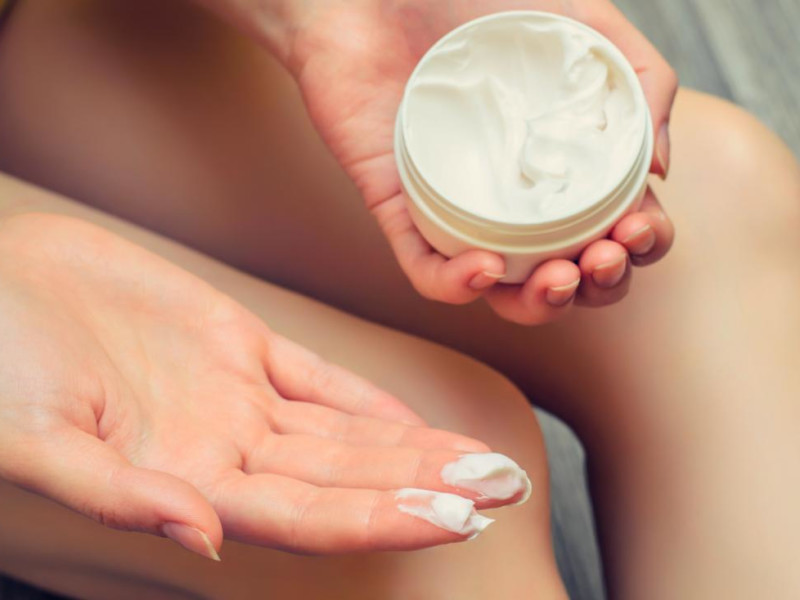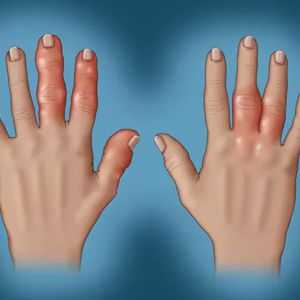8 Lifestyle Tips for Keeping Your Psoriasis in Check
Psoriasis is an autoimmune skin condition characterized by an abnormally fast rate of skin cell production. When the body cannot slough off the extra cells fast enough, the result is a buildup of bumpy red patches covered in white scales. These white scaly patches – called “plaques” - can appear anywhere, but psoriasis plaques tend to show up on the elbows, scalp, lower back and knees. While plaques come and go in most cases, the condition can cover wide swaths of the body in more severe cases.

Psoriasis: Prevalence and Treatment Practicalities
If you have psoriasis and find yourself frustrated with the symptoms, you should know you are not alone. Data from the National Psoriasis Foundation estimate that 125 million people worldwide, including 8 million in the U.S., have psoriasis.(1)
When it comes to flare-ups, common triggers and causes include:
- Cuts, scraps or undergoing a surgery
- Suffering from emotional stress
- Strep infections
- Taking certain medications, including blood pressure medications (beta-blockers) or anti-malarial medication (hydroxychloroquine)
There are several approved treatments on the market indicated to treat psoriasis, including:
- Topical prescriptions or over-the-counter products
- Prescription medications like biologics or oral medications
- Light therapy
While these treatments can be effective when recommended by a doctor, research has shown certain lifestyle habits and behavioral strategies can help immensely in keeping psoriasis symptoms in check. Below you will find a breakdown of the lifestyle hacks you can try to help reduce the severity of psoriasis flare-ups or even help prevent them altogether:
1. Stay moisturized.
Keeping your skin as moisturized as possible to avoid dry skin is an important strategy in preventing or limiting the severity of flare-ups. Dry skin can also worsen cracking and bleeding of the affected skin.
One review of moisturizers, published in 2016, found solutions containing mineral oils like liquid paraffin and petrolatum were the most effective moisturizers when it comes to psoriasis management.(2) Home moisturizers can also be effective in moisturizing the skin. Products like coconut oil and aloe vera gel, both of which include anti-bacterial and anti-inflammatory properties, can be particularly beneficial.
Beyond moisturizers, using a home humidifier can help keep your skin moist and reduce the effects of overall symptoms – especially during the winter when the air is coldest and driest.
2. Spend time in the sun.
Light therapy is an established medication option for a reason – ultraviolet (UV) radiation has been shown to produce immunosuppressive effects. Clinical research has established that autoimmune conditions like psoriasis can directly benefit from UV exposure, which can be found in natural sunlight.(3) Getting out in the sun for short, regular intervals of sunshine can help reduce the severity of psoriasis and prevent flare-ups.
The flip of this recommendation, however, is that spending too much time in the sun can actually have the opposite effect. Skin damage, such as sunburn, can cause psoriasis flare-ups. Practicing safe sun by wearing sunscreen and paying attention to how much time you spend outside can help mitigate the risks of sunlight while still enjoying the benefits.
3. Control your stress levels
Stress is a widely known risk factor for psoriasis flare-ups. Some people can even pinpoint their first flare-up with a high-stress life event or period. The reason behind this link is the fact that stress can cause the immune system to switch into overdrive, and the resulting inflammation can worsen psoriasis flare-ups. Managing your stress levels can help pay dividends in psoriasis management. Try eliminating or at least reducing the stressors to help improve overall outcomes.
On the opposite side, having psoriasis can cause mental health issues, which in turn can exacerbate symptoms. Depression and anxiety have been linked to psoriasis, and if you are experiencing symptoms of either condition it is important to seek treatment immediately – not just in service of your psoriasis management, but also because depression and anxiety come with their own set of risks to your overall health.
Stress-busting activities like yoga, tai chi, practicing mindfulness and meditation can all help work toward stress relief.
4. Fight the urge to scratch and pick.
If your psoriasis plaques are itchy, the temptation to scratch can be very high – but you should know that doing so can increase your risk for infection and potentially trigger other flare-ups due to stress.
Keeping your nails shorts can help decrease the effects of your scratching and pitching, and taking antihistamine medications can help to lower feelings of itchiness. Moisturizing can also help reduce the flakiness and scaliness of your plaques, which in turn can lower your urge to pick at them.
5. Quit smoking.
The health benefits of smoking cessation are well-documented and kicking a smoking habit can have especially positive effects for people with psoriasis. Research has demonstrated that smokers with psoriasis who chose to quit can experience*(4)*:
- Lower frequency of psoriasis flare-ups
- More periods of remission (time with less to no psoriasis presenting)
- Reduced palmoplantar psoriasis, which is psoriasis that directly affects the palms or the hands and soles of feet
- Lower risk for developing other conditions involving the heart, blood vessels, gums and liver
6. Limit your alcohol.
Cutting back on alcohol intake can have positive effects on the state of your psoriasis. Benefits can include:
- Improvement in how well your medications work, which in turn helps keep psoriasis in check
- Reduced risk for liver damage from taking psoriasis medications
- More periods of remission (time with less to no psoriasis presenting)
- Lowered risk for developing other conditions, including fatty liver disease and, in women, psoriatic arthritis
If you do drink alcohol, it is best to do so in moderation. Drinking in moderation is defined as two drinks and one drink per day for men and women, respectively.
7. Keep your weight in check.
Not maintaining a healthy weight can have direct consequences on the state of your psoriasis.
Research has linked being overweight or obese to increased severity of symptoms – with studies noting that keeping your weight in a healthy range can help prevent psoriasis from spreading and limit the occurrence of flare-ups.(5)
Losing weight if you need to is no small task, but you can work with your doctor to determine the right diet and exercise regimen for you. Beyond psoriasis, losing weight can improve your overall health and can reduce the severity of other health conditions you may be dealing with.
8. Stick to a psoriasis-friendly diet
Dieting is an important part of weight management, but it is also prudent to understand that sticking to a certain diet can also help produce positive effects on the management of your psoriasis symptoms. A psoriasis-friendly diet is one that avoids foods that can cause inflammation while eating foods with anti-inflammatory properties.
Foods with anti-inflammatory properties include:
- Fruits and vegetables, especially cherries, berries and leafy greens
- Fish rich in omega-3 fatty acids, including salmon and sardines
- Herbs and spices rich in antioxidants, such as sage, cumin, ginger and thyme
- Heart-healthy fat sources like nuts, seeds and olive oil
Conversely, foods that can contribute to worsened psoriasis symptoms include:
- Dairy
- Fatty cuts of meat
- Processed foods and refined sugars
Final Thoughts
While there is no cure for psoriasis, the condition can be controlled and improved. Working with your doctor should, of course, be a top priority when it comes to managing your psoriasis – but a truly holistic treatment strategy combining adherence to your prescribed medications and lifestyle management will help produce the highest levels of treatment success.










